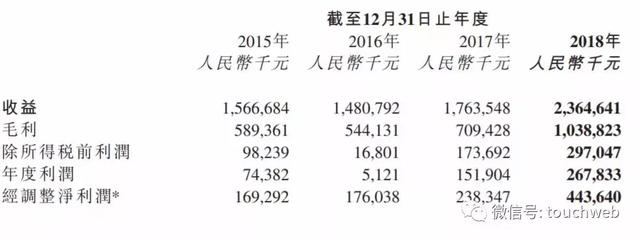雅思口语口诀教学(雅思口语第一部分最佳技巧IELTS)
Hi, guys. Today, I'm gonna share with you my five best tips for IELTS speaking part one, and I will do this with five model answers. ,我来为大家科普一下关于雅思口语口诀教学?以下内容希望对你有帮助!

雅思口语口诀教学
Hi, guys. Today, I'm gonna share with you my five best tips for IELTS speaking part one, and I will do this with five model answers.
So, you can see how to use these tips, so you can improve your answers and get a higher score in the IELTS speaking test. Let's do it!
嗨,伙计们。今天,我要和大家分享关于雅思口语第一部分的五个最佳技巧,我将用五个标准答案来做这些。所以,你可以看看如何使用这些技巧,这样你就可以改进你的答案,在雅思口语考试中获得更高的分数。开始吧!
So, I'm going to illustrate each tip with one model answer and a total of five model answers and in fact, if you go back later and watch the whole video, you'll see that each tip is applied in each model answer.
Ha! Clever, eh? So let's begin! First of all, though in case you don't know, my name's Keith.
我将用一个模型答案和总共五个模型答案来说明每个技巧,事实上,如果你回头看整个视频,你会发现每个技巧都适用于每个模型答案。哈!聪明,不是吗?让我们开始吧!首先,以防你们不知道,我叫基思。
I run ieltsspeakingsuccess and I really hope I can help you improve your English, give better answers and so do much better in the IELTS speaking test.
By the way, if you haven't joined me yet, every Tuesday and Thursday 10 a. m. Spanish time YouTube and Facebook live streaming free live lessons where we're looking at different topics.
我经营 ieltsspeakingsuccess 网站,我真的希望我能帮助你提高英语水平,给出更好的答案,从而在雅思口语测试中取得更好的成绩。顺便说一句,如果你还没有加入,每周二和周四西班牙语时间上午十点,YouTube 和 Facebook 上都有免费的直播课程,在那里我们会谈论不同的话题。
We have about 400 people on the lesson. Come and join us! It is a ball; it's great fun.
我们大约有四百人上这堂课。来加入我们吧!这是一个舞会;很好玩。
You don't want to miss out, especially in this time of the lockdown. What a better way to come together and learn English from each other, not just from me.
你可不想错过,尤其是在这个封锁期。聚在一起,互相学习英语,而不仅仅是向我学习,这是一个多么好的方式啊!
There's some brilliant ideas and language being shared. In addition, I also have an online course. It's on udemy. It's called IELTS Speaking Success Get a Band 7 .
我们分享了一些绝妙的想法和语言。另外,我还有一个在线课程。在 udemy 上,叫做 IELTS Speaking Success Get a Band 7 。
Check it out if it's right for you. It will also help you do really well in the IELTS speaking test.
如果适合你,就去看看吧。这也会帮助你在雅思口语考试中取得好成绩。
So, what about those tips? Let's have a look first of all tip number 1: use some connectors, maybe one or two, to improve your fluency.
那么,那些技巧呢?先来看看第一个技巧:使用一些连词,也许一个或两个,来提高你的流利性。
Now, if you know the band descriptors, you will know that fluency includes things like hesitation but also coherence.
That's the logical flow of your ideas and that logical flow is helped by connectors, things like "and/also/but/in the first place", right ?
如果你了解评分要求,你就知道流利性包括犹豫和连贯。这就是你的想法的逻辑流程,而这个逻辑流程是由连词帮助实现的,例如“and/also/but/in the first place”,对吧?
So, here are some very very common connectors we use particularly in speaking natural English, right?
If I want to give an idea or an opinion, I can say "in my opinion/in my view/to my mind/I would say/as far as I'm concerned", right?
以下是一些非常常见的连词,特别是当我们自然地说英语的时候会用到。如果我想表达一个想法或观点,我可以说“in my opinion/in my view/to my mind/I would say/as far as I'm concerned”,对吧?
Some, some nice natural connectors if you want to add to an idea, if you want to add ideas, we often say "on top of that/also/what's more/I'd also add that", ok?
And of course, if you want to contrast ideas, you can say "but", you could say "however/that said/mind you/at the same time/whilst/that's true/I also think", right?
如果你想添加一个想法,我们经常会说“on top of that/also/what's more/I'd also add that”。当然,如果你想对比不同的观点,你可以说“but”,你可以说“however/that said/mind you/at the same time/whilst/that's true/I also think”。
So, these are natural spoken connectors and it's really important to organize your answer and to improve your fluency. So, let's see in a model answer for the question. . .
这些都是很自然的口语连词,对于组织你的答案并提高你的流畅性是非常重要的。那么,让我们看看这个问题的回答......
What's the question? For the question: Do you think it's important for friends to laugh together? And you're going: "To laugh? What's that?"
问题是什么?是:你认为朋友们一起欢笑重要吗?然后你在想:“一起欢笑?什么东西?”
Sorry, "to laugh". The Queen says "to laugh", but because I'm from Manchester, Manchester, we say "to laugh".
So, the question is from me and this is important because just in case your examiner is from Manchester.
抱歉,“to laugh”。女王说“to laugh”,但因为我来自曼彻斯特,曼彻斯特,我们说“to laugh”。这个问题是我问的,这很重要,以防你的考官来自曼彻斯特。
Listen for the flat /æ/. "Do you think it's important for friends to laugh together?"
听一下 flat /æ/。“你认为朋友们一起欢笑重要吗?”
"To my mind, it's extremely important because it helps us to chill out.
I haven't been going out much lately with my friends, the lockdown, but when we do go out together, we love to crack a few jokes together.
“在我看来,这非常重要,因为这样能帮助我们放松。我最近很少和我的朋友出去,由于封锁期,但是当我们一起出去的时候,我们喜欢一起讲几个笑话。
On top of that, I just think laughing is a great way to stay healthy and positive."
So, did you see there, we had "to my mind", "but", "on top of that", different connectors that really added value and quality to my answer.
除此之外,我认为笑是保持健康和积极的好方法。”看到了吗,我们有“to my mind”,“but”,“on top of that”,不同的连词真的增加了我的答案的价值和质量。
And tip number two is to use some complex grammar, okay. Now, to get a band seven, you need to be using some complex structures.
第二个建议是使用一些复杂的语法。要拿到七分,你需要使用一些复杂的结构。
Complex grammar is really divided into two areas. There is the clauses, so a mixture of subordinate dependent or non dependent clauses, relative clauses.
复杂语法实际上分为两个部分。有从句,由从属从句或非从句、关系从句混合而成。
And then there's the tenses, okay. Let's look here just at the tenses.
然后是时态。我们就看时态。
So, we have simple tenses. So, when you use the present simple and there's the clue, the simple past, another clue the future.
我们有一般时。当你使用一般现在时,有一个线索,一般过去时、一般将来时也有线索。
These are all quite simple tenses, but we could be using more complex ones like present perfect, present perfect continuous, conditionals, and these show off a wider range of grammar, especially when we use them accurately?
So, I think in part one, talking about yourself, one of the easiest tenses to use effectively is the present perfect continuous: I have been doing something, right? I have been living in Spain for two years.
这些都是相当简单的时态,但我们可以使用更复杂的时态,比如现在完成时、现在完成进行时、条件句,这些都展示了更广泛的语法,尤其是当我们准确地使用它们时。所以,我认为在第一部分,谈论你自己,最容易有效使用的时态之一是现在完成进行时:我一直在做一些事情。我在西班牙住了两年了。
So, this is where we talk about something that started in the past and has been continuing until now. It's often used to emphasize recent activities in progress also.
这就是我们所说的从过去开始一直持续到现在的事情。它也经常用来强调最近正在进行的活动。
So, here, instead of saying, you know, "where do you live?", "Well, I live in Spain", okay, simple, right?
But you could just change it a little bit and say "where do you live?" "I live in Spain. I've been living here for two years now", right? Present perfect continuous.
那么,这里,我们除了可以说,嗯,“你住在哪里?”,“嗯,我住在西班牙”,简单,对吧?但是你可以稍微改变一下然后说“你住在哪里?”,“我住在西班牙。我已经在这里住了两年了”,对吧?现在完成进行时。
It gives a really simple, no, complex added edge to your answer and you can use this all over the place. Check out all of the answers today and you might just notice it, okay?
它给你的答案提供了一个非常简单,不,复杂的附加优势,你可以在任何地方使用它。看看今天所有的回答,你可能会发现。
So, let's take a very specific example here. For the question "Do you think history is important?"
让我们举一个非常具体的例子。问题:你认为历史重要吗?
"Yes and no. On the one hand, it's important because it shapes our identity, but on the other hand, I've been reading a few history books recently and it strikes me that history always repeats itself it seems like we never learn!"
“重要,也不重要。一方面,它很重要,因为它塑造了我们的身份,但另一方面,我最近读了一些历史书,让我震惊的是,历史总是在重演,我们似乎永远学不会!”
There, so can you see it? "I've been reading a couple of history books lately", very simple, very effective. Let's move on.
嗯,看到了吗?“我最近读了一些历史书”,非常简单,非常有效。我们继续。
Number three is use idiomatic expressions. To get a band 6 and especially a band 7, for a band 7, you must be using less common and idiomatic vocabulary.
第三是使用习惯用语。要拿到六分,特别是七分,你必须使用一些不太常见的和惯用词汇。
Idiomatic expressions are not only idioms, right? Don't forget phrasal verbs. Some phrasal verbs, in fact, a lot of them are idiomatic.
习惯用语不仅仅是习语,对吧?不要忘记短语动词。一些短语动词,事实上,其中很多是习惯用法。
So that means that the meaning of the whole phrase is different from the individual words. So when I say "I was chilling out with my friends" doesn't mean "I was cold", right?
这就意味着整个短语的意思与单个单词的意思是不同的。所以当我说“I was chill out with my friends”不是指“我很冷”,对吧?
It just means I was relaxing. Chill out, to relax. It's idiomatic. So, a lot of phrasal verbs are idiomatic.
它只是意味着我在放松。Chill out,放松。这是习惯用语。很多短语动词是习惯用语。
So, how many do you need to use? Well, you're not going to use them in every answer, and if you use too many, it will sound unnatural.
那么,你需要用多少呢?你不要在每个答案中都用到它们,如果你用得太多,听起来就不自然了。
But you can sprinkle one or two, I guess, one or two in all of part one would be very very nice. Again, it's not mathematics.
你可以在第一部分用一两个,这样就很不错了。再说一遍,这不是数学。
You just get a feeling for it, but not too many but somewhere in the test. You do want the examiner to go, "Oh, wow!" Two or three times where they hear either a nice idiom or idiomatic expression, impressing the examiner.
只是你认为在考试中需要使用的地方,但不要太多。你希望考官的表情是“哦,哇!”用两到三个习语或习惯用语,给考官听听,使考官印象深刻。
So, let's take an example here. "Indeed it does. As a matter of fact, recently, I've been visiting some of the mountains near my hometown and they are second to none.
现在我们举个例子。“的确如此。事实上,最近我参观了我家乡附近的一些山,它们是首屈一指的。
I mean, they pull in a huge number of tourists and you can see why, I mean, because the views are outstanding." So here, I did sprinkle in actually two, there was "second to none" which means "the very best", right?
我的意思是,它们吸引了大量游客,你可以看到原因,因为那里的风景非常棒。”其实我在这里使用了两个习惯用语,它们是“second to none”,意思是“首屈一指的”。
This mountain is second to none as a tourist attraction. This book is second to none. It's the very best.
这座山是旅游胜地中首屈一指的。这本书是首屈一指的。它是最好的。
And then the phrasal verb "pull in". To "pull in tourists" is to attract tourists. So, I used two.
然后是短语动词“pull in”。“Pull in tourists”就是吸引游客的意思。所以,我使用了两个。
Again, it's not mathematics. You could use one, none, two, but just not too many. Let's move on. Tip number four is waiting for us. Let's get over there.
再次说明,这不是数学。你可以用一个,零个,两个,但不要用太多。我们继续。第四个技巧在等着我们。我们去看看吧。
Tip number four is to make use of synonyms and antonyms. As I'm sure you know, a synonym is a word with a similar meaning like "big" and "large", right?
第四个是使用近义词和同义词。我相信你们都知道,同义词就是意思相近的单词,比如“big”和“large”,对吧?
Antonym is a word with the opposite meaning like "big" and "small". Now, it's really important because it says here, band 7: You have a wide enough vocabulary to discuss a variety of topics flexibly.
反义词是意思相反的词,如“big”和“small”。它们很重要,因为要得到七分,你需要:有足够的词汇量来灵活地讨论各种各样的话题。
So, you need to be building your vocabulary all the time, right? It's an ongoing process; it takes time.
所以,你需要一直积累你的词汇量,对吧?这是一个持续的过程,需要时间。
But there are things you can be doing, you to do it systematically.
So, always be making notes of vocabulary, look at word families, right, the noun verbs and adjectives of a different word, look at prefixes and suffixes — they can really help you — look at synonyms and antonyms, look at learning vocabulary by theme or topic look at collocations.
但是有些事情你可以做,你要有系统地去做。所以,要经常做词汇笔记,学习单词族,不同单词的名词、动词和形容词,学习前缀和后缀——它们会对你有帮助——学习同义词和反义词,根据主题学习词汇和搭配。
All of these are ways to build your vocabulary and I think one of the quickest and easiest ways is synonyms and antonyms. Let's have a look.
所有这些都是积累词汇量的方法,我认为最快最简单的方法之一就是同义词和反义词。我们来看看吧。
In IELTS speaking, right, we often say "I like this". "I like music/I like painting", and here's the examiner. . .
在雅思口语中,我们经常说“I like this”。“我喜欢音乐/我喜欢画画”,然后考官是这个表情......
But we could spice it up a little bit, and use different expressions — I'm fond of/I'm really into, right? "I'm fond of reading/I'm really into reading/I'm one for reading history books", and then the examiners like "Ooh, nice!"
但是我们可以稍微加点料,用不同的表达方式——I'm fond of/I'm really into。“我喜欢读书/我真的很喜欢读书/我喜欢读历史书”,然后考官的表情:“哎哟,不错哦!”
So, synonyms help. Another example right we often say "oh, it's really good" "the film was really good", "the dinner with my family was really good", and there's the examiner. . . Okay, right?
同义词能助攻。我们还经常说“oh, it's really good”,“电影非常好看”,“我和我的家人一起吃的晚餐非常不错”,然后考官的表情......对吧?
We could spice it up again, right? "The dinner was out of this world/the dinner was a cut above the rest/the dinner was outstanding."
我们也可以加点料。“这顿饭棒极了/这顿饭比其他的都好/这顿饭太好吃了。”
And now, your examiner is: "Oh!". . . Mental note. Possibly band seven. So, you're opening up the doors for your band seven.
现在,你的考官是这样:“噢!”......内心独白。有可能拿七分。所以,你在为你的七分打开大门。
Synonym's really important. Let's see one in a model answer.
同义词很重要。我们来看一个标准回答。
"Do you like to go to the zoo?" "To tell you the truth, I'm not really into zoos.
“你喜欢去动物园吗?”“说实话,我不太喜欢动物园。
Actually, I've been thinking about this a lot recently and I get that zoos can be educational, right? But I don't think it's fair to keep the animals cooped up in small cages all day.
事实上,我最近一直在思考这个问题,我认为动物园有教育意义。但我认为整天把动物关在小笼子里是不公平的。
They should be out in the wild I'd say." Right. Nice. So, did you see there "I'm not really into", right, a bit different, a bit nice.
我说它们应该在野外。”很好。你看到“I'm not really into”,对吧,有点不一样,好一些。
"I get", right? "I understand that zoos can be educational", "I get that zoos can be educational". So, it's not necessarily fancy, difficult vocabulary, but synonyms and they're so powerful showing flexibility.
“I get”,对吧?“我明白动物园具有教育意义”,“I get that zoos can be educational”。所以,它不一定是华丽、难懂的词汇,而是同义词,它们能很好地显示灵活性。
Excellent! I can see tip number 5 just coming in right now. Here it comes. Let's go and find out what it's got to say.
很好!我能看到第五个技巧正在路上了。它来了。我们去看看它说了什么。
Tip number 5 is to add adverbs. Add adverbs, right, adverbs like "slowly/quickly/completely/absolutely."
第五个技巧是添加副词。添加副词,比如“slowly/quickly/completely/absolutely”。
Normally, they have a "ly" on the end, and they describe adjectives or verbs and how we do things. Now, adverbs are seriously underused by students, but they're really important, right?
通常它们都以“ly”结尾,修饰形容词或动词和我们如何做某件事。学生们并没有充分使用副词,但它们真的很重要。
Native speakers use them an awful lot. As you can just see, it helps you sound more natural helps you be more flexible and show off your vocabulary and they're so easy, right?
本地学生大量使用副词。正如你所看到的,它让你听起来更自然,让你更灵活,展示你的词汇量,而且它们很容易,对吧?
I'm sure you know these adverbs, but you may not be using them. So, in order to say "really", we can say "absolutely/totally/completely/extremely".
我相信你知道这些副词,但你可能没有用它们。要表达“really”,我们可以说“absolutely/totally/completely/extremely”。
In order to say "quite", "that film was quite interesting", right, "it was somewhat interesting/it was fairly interesting/it was rather interesting", right? And to say of "not often" — rarely — "I hardly ever do that/I do that once in a blue moon", one of my favourites.
要表达“quite”,“那部电影非常有趣”,对吧,“它有点有趣/相当有趣/非常有趣”。要表达“not often”——很少——“我几乎不那样做/我很少那样做”,这是我的最爱之一。
Remember or notice: if it's a long adverb, an adverbial clause like "once in a blue moon", it goes at the end, right? "I do it once in a blue moon."
记住,如果它是一个长副词,一个状语从句,例如“once in a blue moon”,它要放在后面。“我很少那样做。”
Okay, so, let's see it in action. "Have you ever been to an art gallery?"
我们看看例子。“你去过艺术馆吗?”
"To be honest, I've been visiting quite a few art galleries recently, because my wife is a bit of an art buff. We went to a modern art exhibition last week and I was completely bowled over by the paintings they were totally out of this world."
“说实话,我最近参观了不少艺术馆,因为我妻子是个艺术爱好者。上星期我们去了一个现代艺术展,我被那些一流的绘画所震撼。”
Did you see that? "Completely", "totally", nice adverbs, give it a touch of naturalness, excellent, good.
看到了吗?“Completely”,“totally”,非常好的副词,使句子更自然,非常好,不错。
So, we have looked at five different tips. If you now go back and listen to each model answer, see if you can spot every single tip in each answer.
那么,我们学习了五个不同的技巧。如果你现在回过头来听每个标准答案,看看你是否能在每个答案中找出每个小技巧。
A few of these tips have talked about vocabulary, right? Learning vocabulary takes a long time.
这些小贴士中有一些是关于词汇的,对吧?学习词汇需要很多时间。
It takes patience and persistence. It's something you need to dedicate time to but believe me, it's worth it, it's well worth doing.
需要耐心和恒心。这是你需要花时间去做的事情,但是相信我,这是值得的,值得去做。
I hope these tips have helped you. I'm curious which one do you think is the most useful for you.
我希望这些技巧能帮助你。我很好奇你觉得哪个对你最有用。
Write a comment below and let me know. And my final word, two final words.
在下面写一个评论,让我知道。最后,最后说两点。
First of all, remember come and join us on Facebook or YouTube live Tuesdays and Thursdays ten o'clock Spain time, be great to see you there. Second thing is I know a lot of us are in lockdown.
第一,记得在西班牙时间星期二和星期四十点点来参加 Facebook 或 YouTube 的直播,很高兴在那里见到你。第二,我知道在封锁期很多人都很艰难。
These are very hard times, right? Just to say stay strong, stay positive.
这些时间很难,对吧?要坚强,保持积极。
I'm sure things are going to get better. The good news is your English is surely getting better day by day if you turn up and you keep going you will get there.
我相信事情会好转的。好消息是你的英语肯定一天比一天好了,如果你继续努力,你会成功的。
So, stay positive. If I can help you on your trip of improving your English, I'm a very very happy man.
保持积极。如果我能在你提高英语的旅途中帮助你,我会非常非常高兴的。
In the meantime, do take care, stay safe, can't wait to see you here soon, all the best, bye bye.
同时,一定要保重,注意安全,迫不及待地想在这里见到你,祝你一切顺利,再见。
,免责声明:本文仅代表文章作者的个人观点,与本站无关。其原创性、真实性以及文中陈述文字和内容未经本站证实,对本文以及其中全部或者部分内容文字的真实性、完整性和原创性本站不作任何保证或承诺,请读者仅作参考,并自行核实相关内容。文章投诉邮箱:anhduc.ph@yahoo.com






